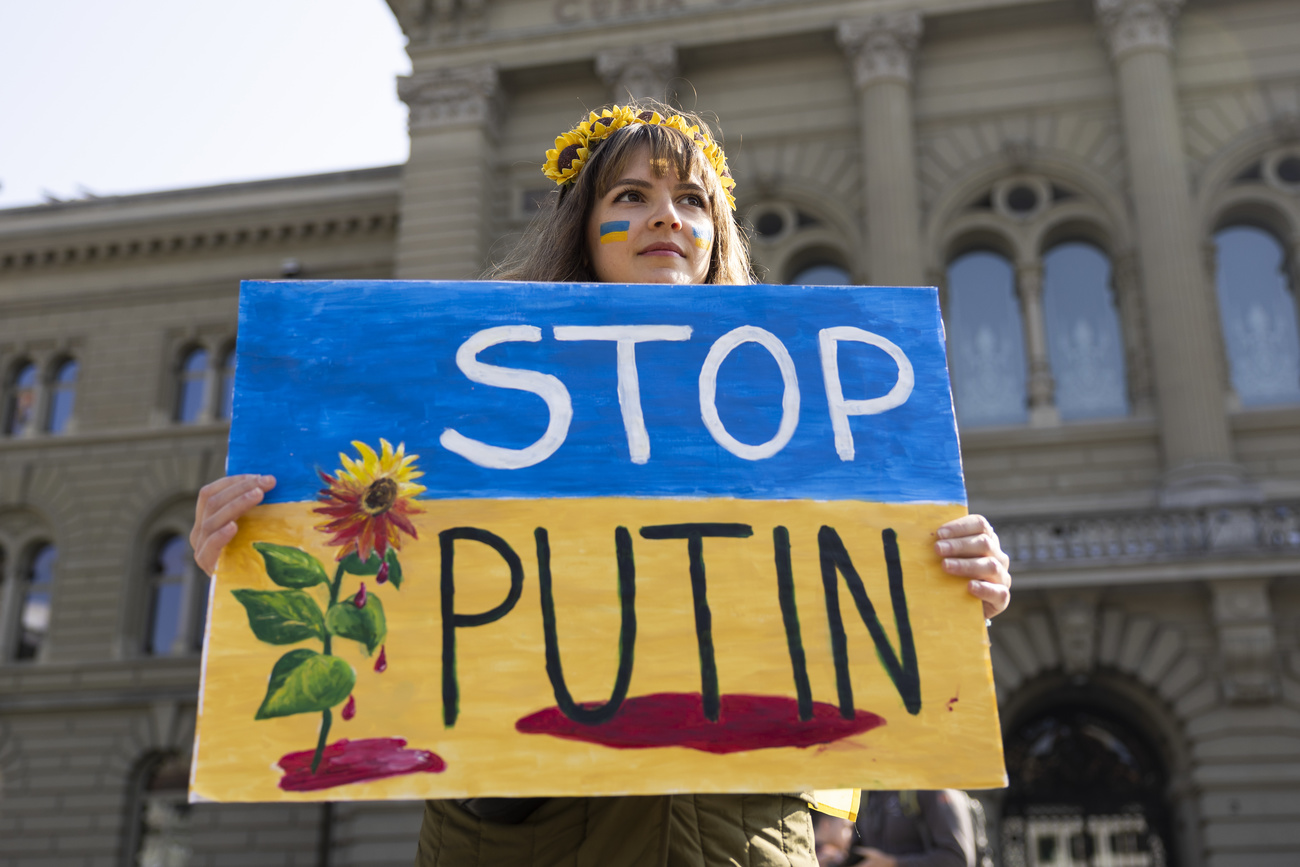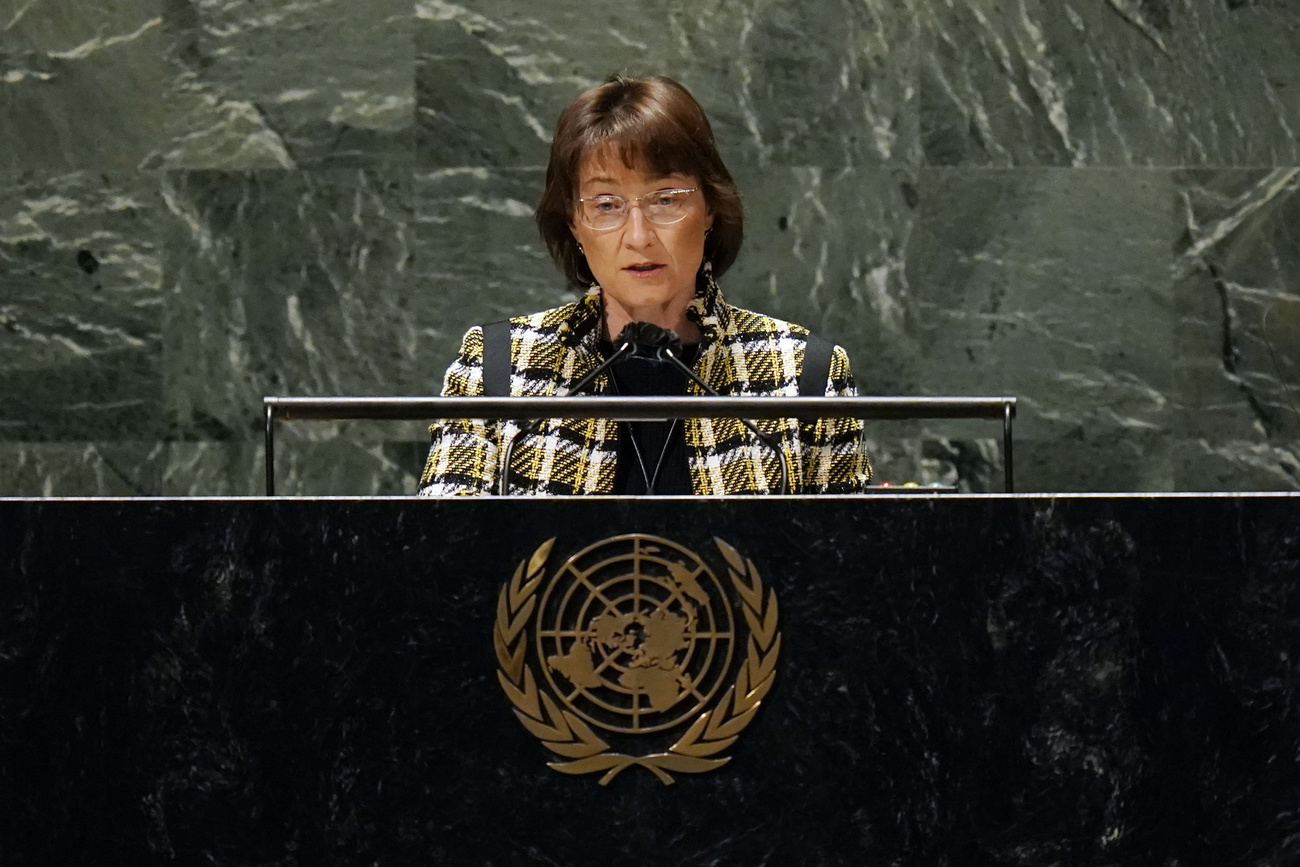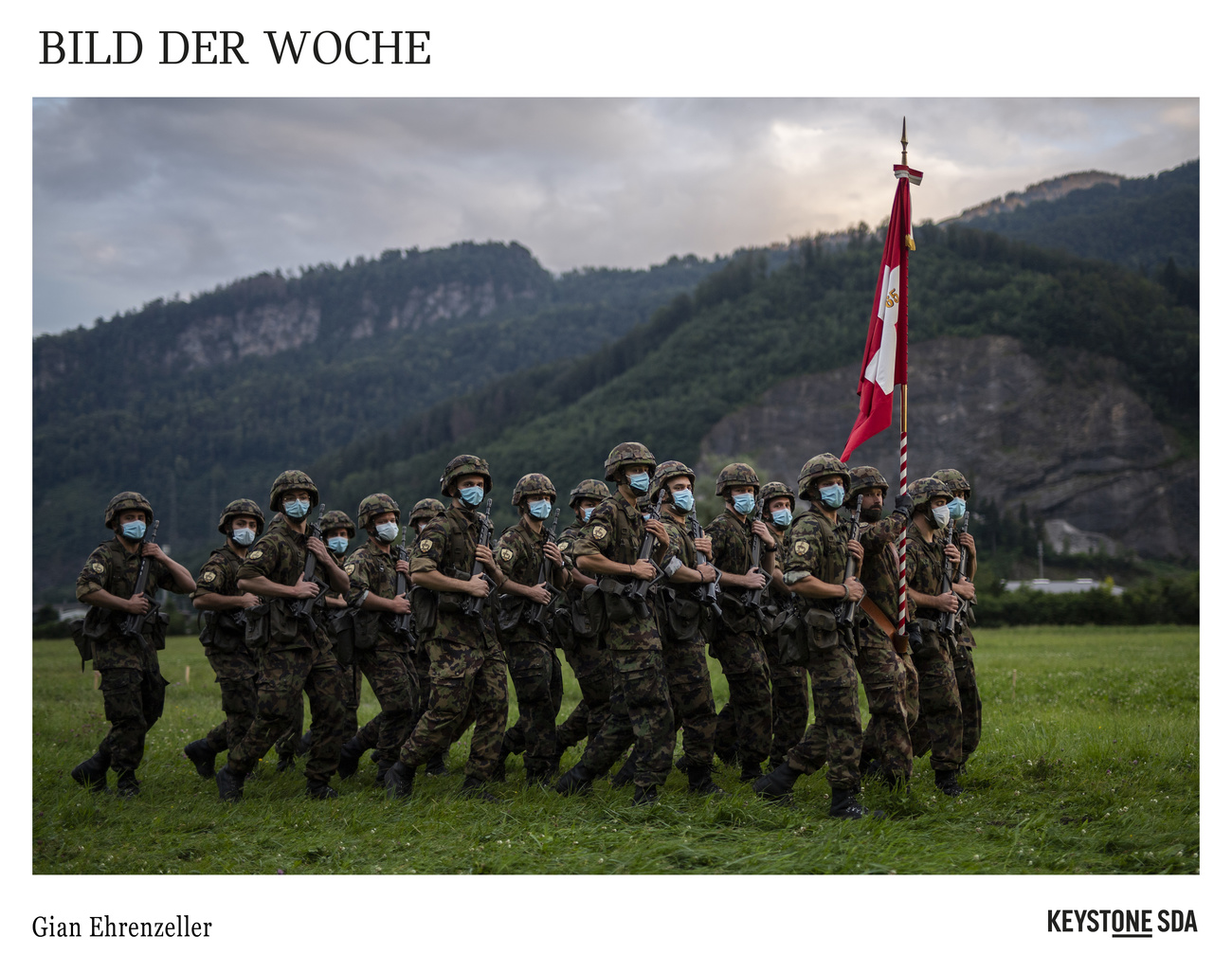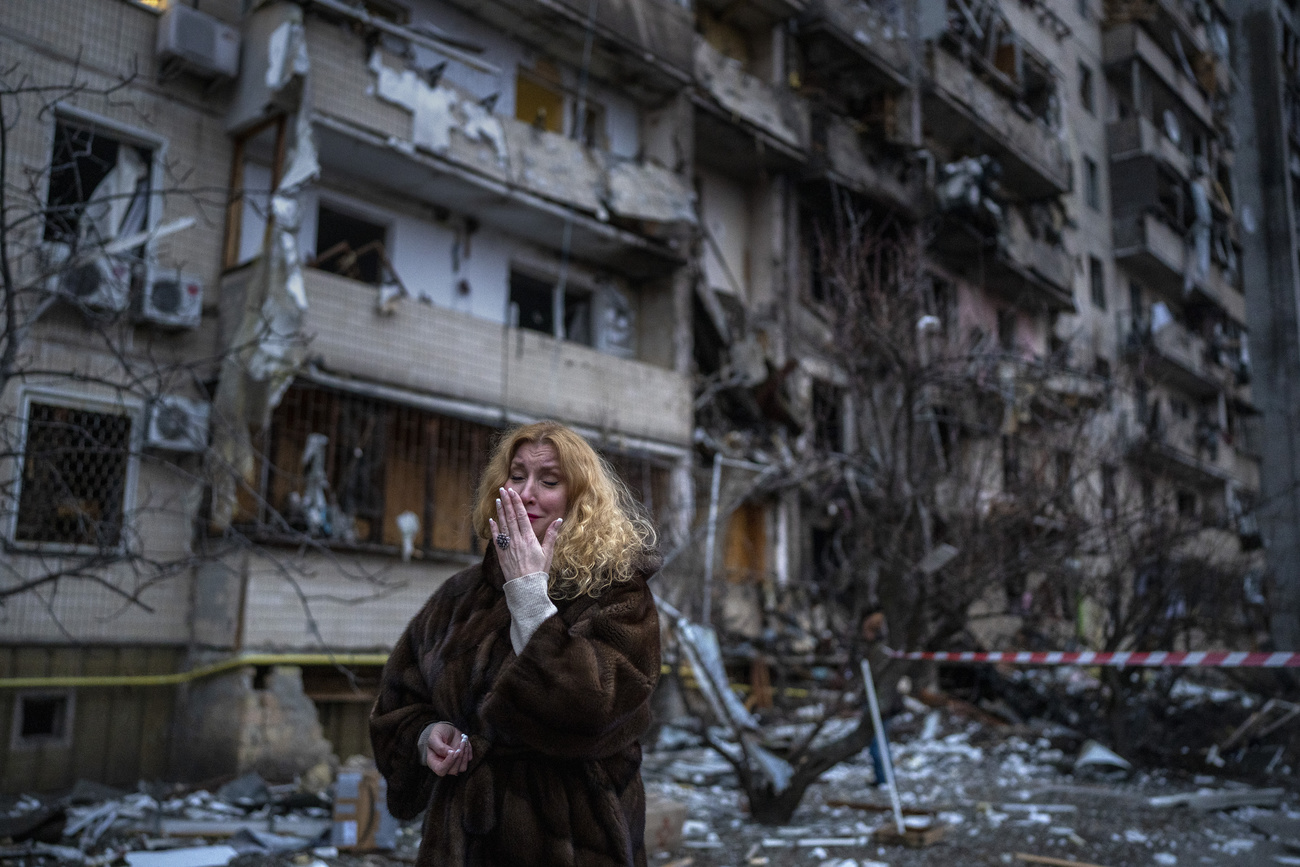Putin’s war: a challenge for Switzerland
Dear readers,
It was a decision about neutrality and solidarity. Switzerland finally chose to side with Ukraine. Is this compatible with the Alpine nation's global reputation for neutrality? The Swiss decision has certainly sparked plenty of debate that we have been covering closely at SWI swissinfo.ch.
“We are grateful that Switzerland supports us and does not stand aside,” declared Ukrainian President Volodymyr Zelensky. “Because it is impossible to stay out of it when missiles and bombs are falling on peaceful cities in the 21st century in the heart of Europe.”
Zelensky addressed these words on March 19 via a live broadcast to several thousand people, including many Ukrainians, at a rally in the Swiss capital Bern.

More
Ukraine’s embattled leader urges Swiss banks to drop Russian oligarchs
Switzerland says the implementation of sanctions against Russia remains compatible with its neutrality and that nothing has actually changed in this regard.
“Playing into the hands of an aggressor is not neutral,” declared Ignazio Cassis on February 28. “As a contracting state and a party state to the Geneva Conventions, we are committed to humanitarian imperatives and must not stand by while these are trampled underfoot.”
Swiss diplomat Pascale Baeriswyl, who represents Switzerland at the United Nations in New York, elaborates further on this. “As a small country that is one of the most globalised in the world, it is an issue of existential importance that international rules are respected – both in economic policy and security policy,” says the Swiss diplomat. Read our interview with Baeriswyl below.

More
Switzerland is ‘European but independent’ says top diplomat
In the bloc-like thinking of the Cold War, Switzerland positioned itself where it was located geographically: in the western part of Europe, with western values such as democracy, freedom and equality for all. These fundamental elements of an open society have grown in importance. But Switzerland has long since ceased to see its neutrality as going it alone, writes SWI journalist Sibilla Bondolfi.
Rather, it has been cooperating militarily with NATO and with its neighbouring countries on a selective basis for some time now. Read why this dynamic suits Switzerland even today.

More
Switzerland will remain neutral – until it’s attacked
At the same time, there are still big differences compared with countries like Sweden and Finland, which also call themselves neutral but are much more closely linked to NATO. Security researcher Lea Schaad explains the nuances.

More
Will Switzerland ever join NATO?
In view of Russia’s attacks on the Ukrainian cities of Mariupol, Kherson and Kharkiv, discussions about neutrality and international ties may seem like navel-gazing. Yet it is precisely Switzerland’s consistency that has made it the venue for international organisations and important conferences. The alleged Russian war crimes are on the radar of the Geneva-based UN Human Rights Council, as SWI journalist Julia Crawford writes.

More
Will Russia’s leaders be brought to justice for Ukraine war crimes?
What next? As long as the war rages, Switzerland will continue to work discreetly towards peace. But it will probably be more difficult to implement additional tough sanctions, especially as Switzerland, like many other countries, is dependent on Russian gas.

More
‘Next winter will be difficult in Europe without Russian gas’
Can Switzerland do more? Or has it already gone too far for a so-called neutral state? Let us know what you think.
More

In compliance with the JTI standards
More: SWI swissinfo.ch certified by the Journalism Trust Initiative










You can find an overview of ongoing debates with our journalists here . Please join us!
If you want to start a conversation about a topic raised in this article or want to report factual errors, email us at english@swissinfo.ch.